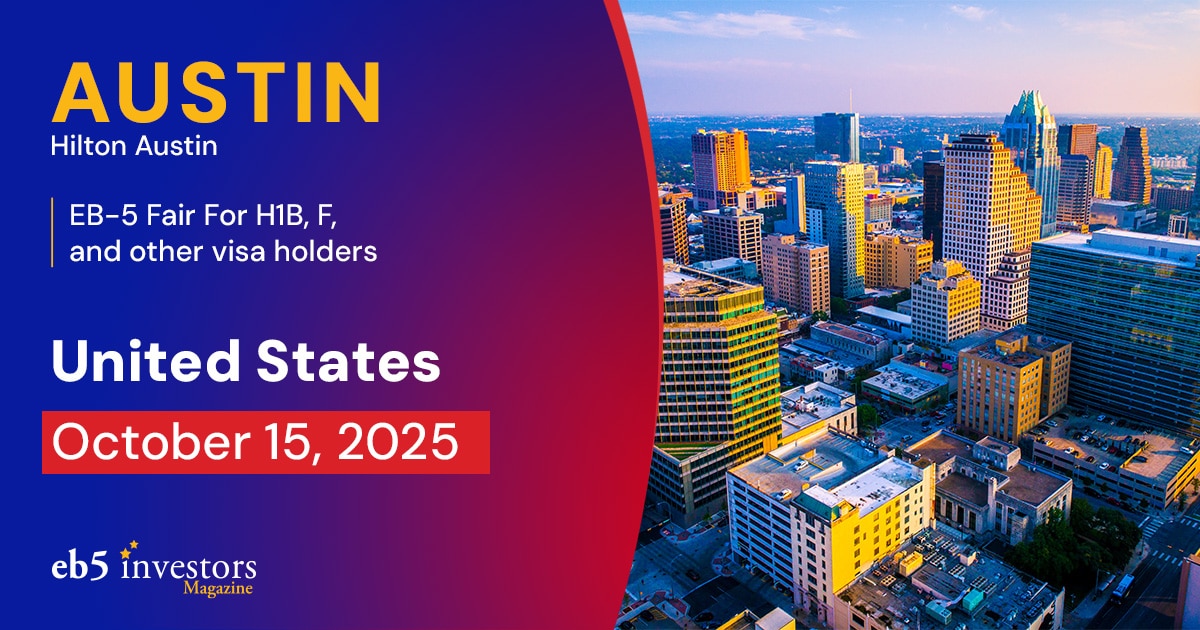
Seven Indian EB-5 investors have filed a suit against USCIS in a California court, claiming they should be protected under the “Good Faith” provisions of the EB-5 Reform and Integrity Act (RIA).
“I hope that the Court will recognize that USCIS cannot continue to ignore what Congress told it to do to clean up EB-5 processing,” says immigration attorney Matthew Galati of Galati Law Firm, LLC, who represent the investors.
EB-5 investors who have submitted their I-526 petitions have legal protections established under the RIA. These protections are designed to safeguard their rights in situations where these investors face challenges and setbacks in their EB-5 investments that are beyond their control.
These investors are recognized as “good faith” investors because they have followed the proper procedures, complied with all EB-5 program requirements, acted transparently, and invested accordingly. However, because the regional center or project sponsor fails to meet its obligations under the program, their eligibility for the EB-5 visa is at risk.
What does “good faith” safeguards mean for EB-5 investors?
Currently, these “good faith” safeguards are the protagonists of a lawsuit filed on June 17 by seven Indian EB-5 investors in a California court against USCIS. The complaint arose from the USCIS denying their I-526 applications eight months after the agency terminated the regional center where they had invested.
The plaintiffs’ legal representation, Galati Law Firm, LLC, argues that USCIS improperly denied their EB-5 petitions and did not uphold their rights as “good faith” investors. They contend that instead of outright denial, the USCIS should have given the applicants the opportunity to redeploy their investments to new EB-5 projects. They assert that USCIS caused unreasonable delays and failed to act promptly.
The firm has also said that this is “the first such suit of its kind following the passage” of the RIA.
“It has been over three years since the RIA was passed and many questions are left unanswered for reasons none of us fully understand,” Galati said. “In this case, the Agency’s failure to timely take action harmed our clients. We all know, that all too often, USCIS fails to act on its deadlines even though the agency is required by law. It’s time the judiciary start enforcing the standards Congress requires USCIS to meet.”
Timeline of the key developments in the EB-5 lawsuit
The claim filed on June 17 documents several events leading to the I-526 denials and the EB-5 investors’ lawsuit.
- In 2013, USCIS approved the Texas EB-5 Regional Center (Texas Longhorn Investments, LLC).
- In 2018, the regional center began raising funds for EB-5 investors through USFC Fund 18, LLC, the New Commercial Enterprise (NCE) responsible for the EB-5 project.
- In 2021, the EB-5 Regional Center Program lapsed.
- In 2022, Congress enacted the EB-5 Reform and Integrity Act of 2022 (RIA), introducing new protections for investors and enhancing oversight for regional centers.
- On October 13, 2023, the Meyer Law Group law firm submitted a debarment request to USCIS for Fund 18, LLC and SoGood Multifamily I, LP (the Joint Commercial Enterprise) because they failed to comply with the business plan and economic report as per the RIA.
- Between November and December 2023, Meyer sends a set of follow-up letters to USCIS urging the expedited debarment of Fund 18 and the JCE. In the final letter, the law firm expressed concern over the lack of action from USCIS, especially since the agency had begun issuing Notices of Intent to Deny (NOIDs) for the investors’ I-526 petitions.
- In July 2024, USCIS issued a Notice of Intent to Terminate (NOIT) for the Texas EB-5 Regional Center due to its failure to comply with required filings and fees. The entity was officially terminated on July 29, 2024.
- In February, the seven plaintiffs received denials for their I-526 petitions.
- In June, the EB-5 investors filed their lawsuit against USCIS in the US District Court of Northern District of California, San Francisco/Oakland Division.
The plaintiff’s defense expects the Department of Justice attorneys to reply around Aug. 22, 2025. “We have sent over a copy of the Complaint to USCIS’ main litigation email account, as well as to a local DOJ attorney who has appeared in immigration cases in the past. They could fight back. They could try to settle. Everything is on the table right now, but the paramount focus here is to resuscitate these otherwise dead I-526s and allow our clients to continue their EB-5 journeys,” Galati said.
What is next for the EB-5 investors?
The investors’ defense argues that the USCIS did not terminate the regional center in a timely manner before processing their Form I-526 petitions. As a result, the agency did not notify the investors that their regional center was being terminated, thereby preventing them from amending their petitions, pursuing remedies, or challenging the denials.
The EB-5 investors are seeking a court order to compel USCIS to act on their denied petitions and restore their eligibility for the EB-5 program, specifically allowing them to reinvest their capital in another EB-5 project.
Galati adds, “Obviously getting the relief our clients need is the most important thing. But a distant second would be to establish a precedent that USCIS must abide by the investor protection requirements in the RIA.”
As to how this lawsuit could become a potential turning point for other “good faith” investors, Galati affirms: “”Any time you get a Court to decide a case you set a precedent. Sometimes it’s a great precedent. Other times you are sent back to the drawing board and need to develop a whole new strategy. We are hoping this case could provide a strategy for similar investors otherwise deprived of relief to continue their immigration journeys as Congress intended.”
DISCLAIMER: The views expressed in this article are solely the views of the author and do not necessarily represent the views of the publisher, its employees. or its affiliates. The information found on this website is intended to be general information; it is not legal or financial advice. Specific legal or financial advice can only be given by a licensed professional with full knowledge of all the facts and circumstances of your particular situation. You should seek consultation with legal, immigration, and financial experts prior to participating in the EB-5 program Posting a question on this website does not create an attorney-client relationship. All questions you post will be available to the public; do not include confidential information in your question.








